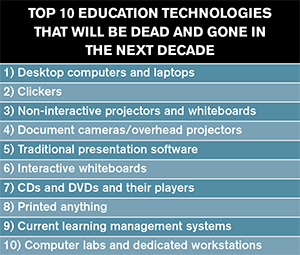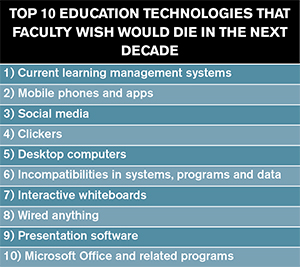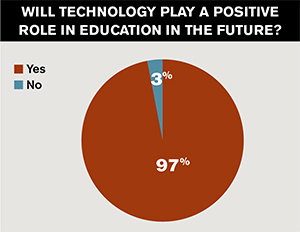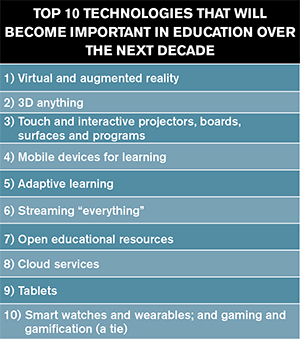innovation online ed
Is innovation severely lacking in online education?
most responding institutions have online program tuition rates that are aligned with standard tuition or that are higher. Those higher tuition rates ranged from 12 percent of private institutions to 29 percent of four-year public institutions, and lower than standard tuition rates ranged from 3 percent of community colleges to 37 percent of private institutions. None of the larger online programs reported tuition rates for online students that are lower than standard tuition rates, and 20 percent reported higher tuition rates for online study.
Course development
Forty percent of chief online officers in larger programs larger programs use instructional design support, and 30 percent use a team approach to online course design. Ten percent outsource course design.
This kind of course development is in stark contrast to practices of chief online officers in mid-sized and smaller programs. Among the smallest online education programs, 18 percent of chief online officers expect faculty to develop online courses independently, and 53 percent treat instructional design support as a faculty option. This means that a combined 71 percent of smaller programs do not mandate the use of instructional design specialists.
In 13 percent of mid-sized programs, faculty are expected to develop courses independently, and in 64 percent of mid-sized programs, they are free to choose whether or not to involve instructional design specialists, yielding a combined 77 percent of programs that do not require the use of instructional design expertise.
Teaching, learning and technology
The CHLOE survey also asked chief online officers to name three technologies or tools they consider most important or innovative for their institution’s fully-online programs. Eighty-one percent first listed an LMS, while others named audio and video conferencing and lecture capture. The technologies most-cited for second- and third-most important were conferencing, video and lecture capture software. (see Plamen’s effort to start faculty discussion on lecture capture here: http://blog.stcloudstate.edu/coursecapture/)
“There was no sign of much-hyped innovations like adaptive learning, competency-based education LMS solutions, or simulation or game-based learning tools,” according to the study. “Such tools may be in use for specific courses or programs but based on responses to CHLOE, these have yet to achieve institution-wide adoption at any scale.” (see Plamen’s efforts start a discussion on game-based learning here: https://blog.stcloudstate.edu/ims?s=game-based+learning
++++++++++++++
more on online ed in this IMS blog:
https://blog.stcloudstate.edu/ims?s=online+education




